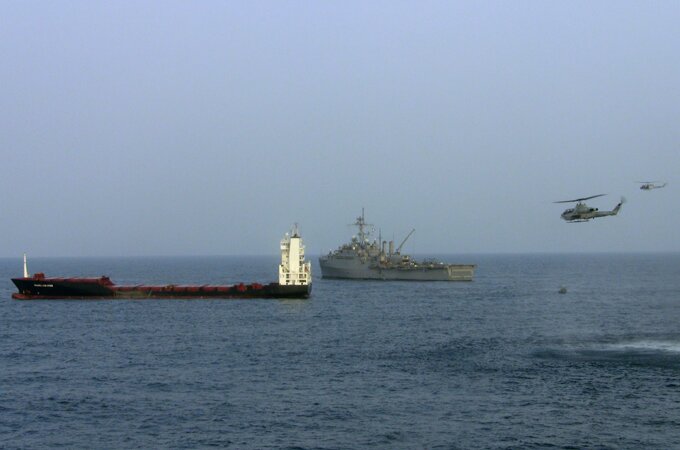 Bartamaha (Somalia):- Pirates off the coast of Somalia are keeping ahead of attempts by international authorities to stop them, capturing ever more hostages and bounty, a UN official has said.
Bartamaha (Somalia):- Pirates off the coast of Somalia are keeping ahead of attempts by international authorities to stop them, capturing ever more hostages and bounty, a UN official has said.
B Lynn Pascoe, the UN undersecretary-general for political affairs, said on Tuesday that more viable economic alternatives are needed to prevent the migration of young Somalis into piracy.
More than 438 crew and passengers and 20 ships are currently being held hostage at sea near Somalia, according to latest International Maritime Organization figures.
‘Greater risks’
“Piracy is a menace that is outpacing efforts by the international community to stem it,” Pascoe said.
“The pirates are taking greater risks and seeking higher ransoms.
“As long as piracy is so lucrative, with ransom payments adding up to tens of millions if not hundreds of millions of dollars, and other economic incentives so bleak, the incentives are obvious.”
The pirates are said to be using larger vessels and have spread their net of attack to up to 1,000 nautical miles from the Somali coast to avoid patrols.
The Gulf of Aden, which runs between Somalia and Yemen, is one of the busiest shipping road in the world, used by about 20,000 vessels annually.
However, Pascoe said that the situation would be worse “if not for the very considerable international anti-piracy efforts under way”.
The EU, Nato and navies from the region are increasingly patrolling the sea and other coastal areas where the pirates operate.
Dozens of ships of various navies from around the world are attempting to police the region, with more than 700 suspected and convicted pirates in detention in 12 countries at present, the UN Office on Drugs and Crime said. More than half of those are being held in Somalia.
However, a UN report released last week said that there have been more successful hijackings in the first 10 months of the year, compared to that of 2009.
On Saturday, pirates announced that a ransom of $9 million had been given to them for a South Korean supertanker.
===========================
Source:- Al-jazeera,Agencies



